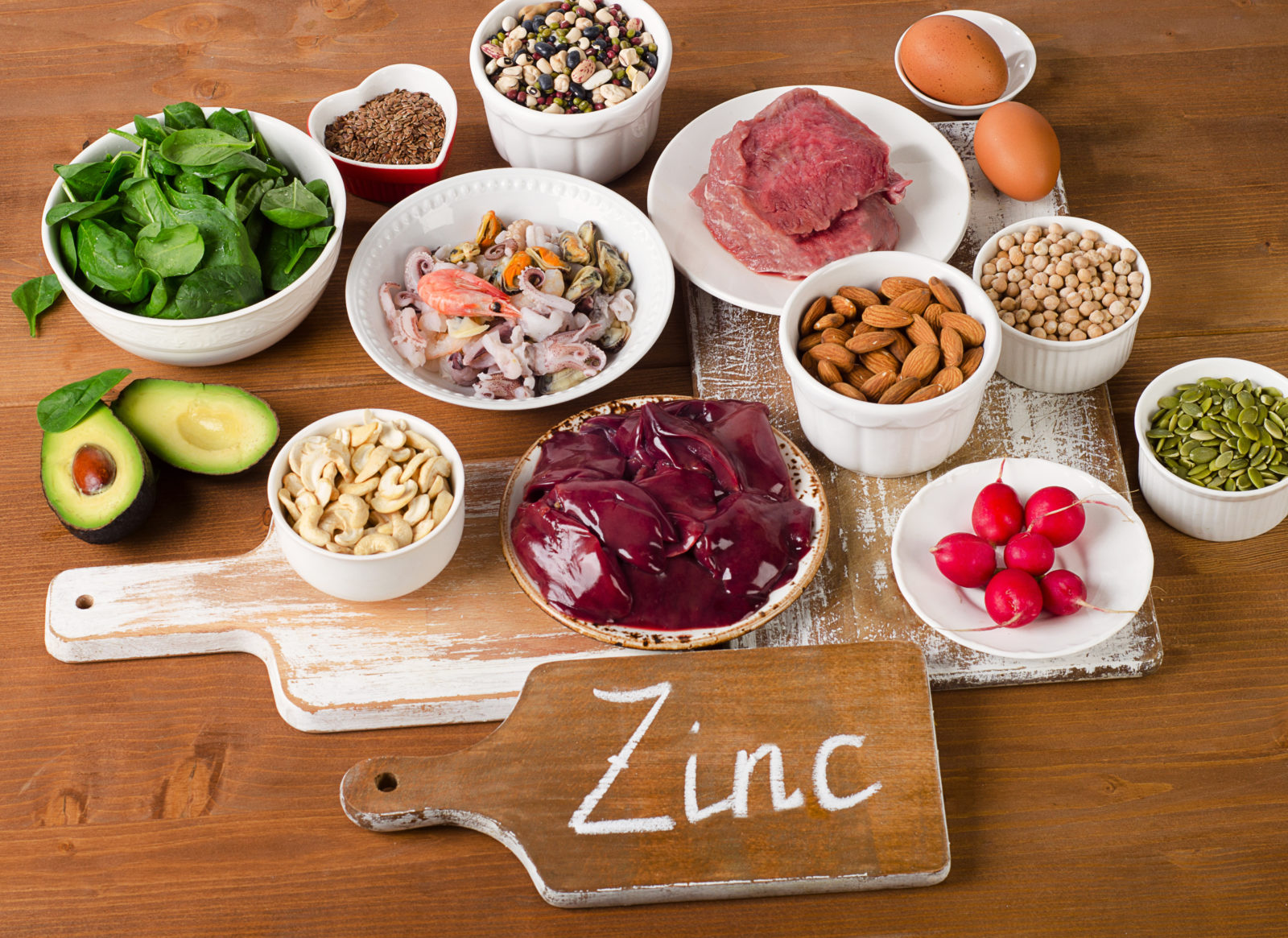Zinc is a mineral that is also a trace element required for proper human health. Our bodies do not store zinc so it is necessary to consume it through food sources as a part of a healthy diet. Taking zinc orally helps prevent zinc deficiency and all the symptoms associated with it – which includes stunted growth, diarrhea, and slow wound healing. A sufficient amount of zinc can help boost your immune system, improve growth and health in children, can treat the common cold and recurrent ear infections. Zinc plays a key role in maintaining vision as well as skin integrity. It also plays a key role in our sense of taste and smell. A large part of the human population is zinc deficient – between 35-60% of people. As few get enough from their diet, it is important to supplement to maintain proper structural and regulatory functions in the body. Common dietary sources of zinc include wild turkey, oysters, green peas, and raw almonds. (Murray, M.Y., et al., 2012) (ed. Faelten, S., 1988) (Erasmus, U., 1993) (Maret, W., et al., 2006).
- Cell division & growth
- Maintain immune function
- Reproductive system support
- Antioxidant
- Energy Production
- Cardiovascular Health
Dosage
Benefits
- Reduces inflammation caused by eczema, psoriasis and acne
- increases fertility
- increases energy
- improves digestion and metabolism
- Organic/wild turkey
- raw almonds
- raw pecans
- watercress
- shellfish
- green peas
- ginger
- Oysters (high content)
Side Effects
- Nausea
- High doses can cause UTIs
- White marks on nails
- susceptibility to infection
- infertility
- mental and emotional problems
- poor skin quality
- poor immune function
- development of diabetes
Signs of Zinc Deficiency
- white marks on nails
- lack of appetite and/or a lack of appetite control
- infertility
- greater susceptibility to infection
- poor growth (including that of hair)
- poor skin quality – such as the development of acne, dermatitis, stretch marks
- mental and emotional problems
- poor immune function
- the development of diabetes – as insulin requires zinc
Apart from being immune-boosting, zinc is an integral part of one’s sense of taste and smell and when there is not enough zinc in one’s system it can be a contributing factor in under-eating, overeating, and obesity. When zinc is low it can dull one’s sense of taste, making food unappealing to some or diminishing one’s appetite. For others, when the body is starving for nutrients it will continue to consume food until nutritional requirements are fulfilled. When one consumes processed foods fulfilling that requirement is very difficult. When the body is deficient in zinc it will not be able to give a signal of “satisfaction” until it has acquired as much zinc as it needs (Junger, A., 2009).
Ensuring proper supplementation as well as consuming foods rich in zinc is important to maintain zinc serum levels and homeostasis. As a result of heavy rains, zinc can, and often is, washed or leached out of farming soil. Moreover, when food is being cooked, much of the zinc may be lost to the water that it is placed in. Therefore, it is good to either eat zinc foods raw, steam them or cook them in such a way that the broth or sauce that they sit in is consumed as well.
Refined foods lose a lot of zinc, about 78% is lost during processing, this makes the recommended daily allowance much harder to hit when individuals consume processed or fast food (Erasmus, U., 1993). It is important to consume organic whole foods when one is low in zinc, or any nutrient for that matter to increase the serum levels in the body.
Zinc is a cofactor in over 300 enzymes in the human body, it is necessary for numerous bodily functions, from the proper maintenance of body tissues, immune function, detoxification, growth and development, and sexual function to name a few (Keith, A., et al., 2000)(Haas, E.M., et al., 2006). Zinc is also required by the body to make every cell within it. Zinc is an integral part of protein building, which is needed by both DNA and RNA, the genetic material of our cells. This means that zinc is especially needed at optimal levels, during pregnancy, childhood and during periods of illness and wound healing (ed. Faelten, S., 2000).
The body stores between 2-3 grams of zinc, of which 0.1% is replaced daily, however, if ample zinc is not supplemented with daily and if the absorption of zinc is not adequate in the digestive tract the body’s stores of zinc begin to deplete (Maret, W., et al., 2006). Zinc requires linoleic acid to properly function in the body (Erasmus, U., 1993).
Zinc Storage in the Human Body.
The human body contains 2-3g of zinc, 90% of which is stored in muscles and bones. Other organs that contain zinc are the prostate, liver, digestive tract, kidneys, skin, brain, heart, and the pancreas. Zinc is found in serum, bound to proteins such as albumin, microglobulin, and transferrin (Plum, L.M., et al., 2010).
Zinc is absorbed in the small intestine by carrier-mediated mechanisms. The percentage of the zinc absorbed is sometimes difficult to determine as zinc is also excreted into the digestive tract. Zinc absorption rates also differ across different populations (Roohani, N., et al., 2013).
Digestive issues can affect the amount of zinc brought into the body, as can the consumption of tea. Tea contains tannins, secondary metabolites, which interfere with the absorption of zinc, therefore it is important to consume tea away from zinc supplementation (Holford, P., et al., 2010).
Foods High In Zinc
Even when one is eating a healthy diet it is difficult to consume 15mg of zinc from one’s diet unless one is strictly focusing on zinc containing foods. Vegetarians and vegans often have a more difficult time reaching the daily recommended amount of zinc, that is why it is incredibly important to supplement. Zinc is absorbed best from animal products, though it is still bioavailable in plant sources. Its absorption is inhibited in plant sources by phytate, a phosphate-containing compound found in grain products, as well as some beans such as soybeans (DiSilvestro, R.Q., 2004).
The statement, “You are what you eat and what your food eats”, is an important one when looking at any nutrient the body needs. Whether it is a plant or animal source of zinc, if the food you consume is not developed under the best conditions it is very unlikely that they will be plentiful in nutrients. Free-Range or Wild Turkey is a great source of zinc, providing about 30 oz, which is equivalent to 14% of the daily required zinc (Pratt, S., et al., 2005). The same cannot be said for a turkey raised on a diet of grains and left in a cage. Just as stress eats away at our mineral stores, so does it for animals. Plants grown in nutrient-depleted soil will hold little to no zinc stores, this is why it is important to choose organic whenever possible and consume nuts and seeds rich in zinc.
- Organic/wild turkey
- raw almonds
- raw pecans
- watercress
- shellfish
- green peas
- ginger
- Oysters
- raw cashews
- chickpeas
- split peas
- herring
- lima beans
- brazil nuts
- sesame seeds
- sunflower seeds
Zinc absorption from food is affected when the lining of the gut is damaged, for example by Celiacs Disease, physical or mental trauma, an accident, etc therefore proper digestion of these foods is needed to release zinc and make it usable by the body (Perlmutter, D., 2013) (Culter, E.W., 2005) (Romm, A.J., 2014).
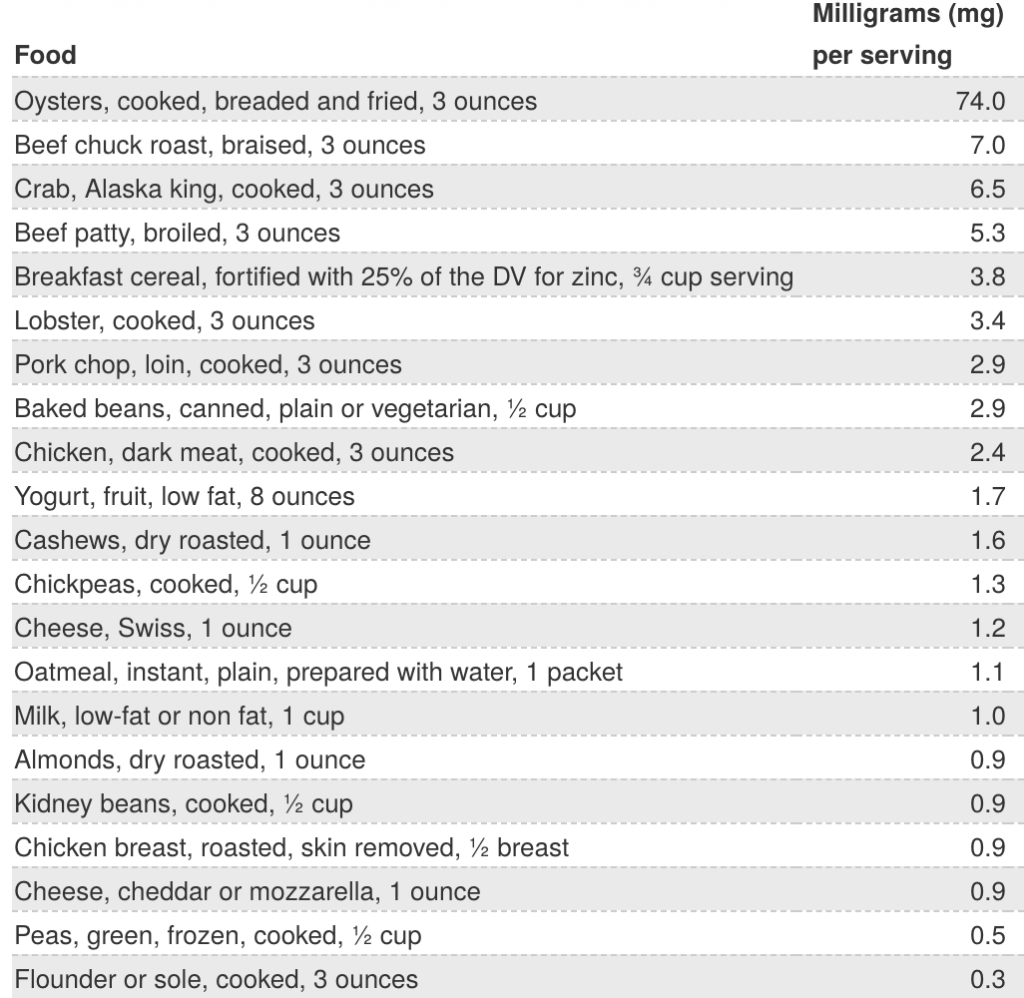
Zinc – An Essential Nutrient For Children
Zinc is needed by every cell in the body, as it is responsible for the protein strands in DNA and RNA. As such is crucial for growth and development. A lack of zinc in the diet of a child can be represented as poor growth and development as well as a lack of appetite (MacDonald, R.S., 2000). Zinc is an essential nutrient for the development of the brain in children. It enhances the cognitive effect by enhancing attention, memory, problem-saving and hand-eye coordination. However, the recommended daily amount of 10mg may not be enough to promote the development of most children as it is a recommended amount to prevent deficiencies not improve development (Holford, P., et al., 2010).
Zinc is also responsible for the enhancement of pituitary hormone function, which is responsible for the release of growth hormone. The growth hormone is responsible for the growth and development of a child, too little can stunt the child’s growth; muscular, skeletal and organs (MacDonald, R.S., 2000). Premature babies do not have a zinc store as it is eliminated or minimalized, making it incredibly important for the mother of the child to supplement with zinc (DiSilvestro, R.A., 2004). Zinc is required for laying down tissues during the growth and development of children. Zinc declines in breast milk over time, making it important for breastfeeding mothers to keep replenishing their zinc stores, especially for infants that are preterm or suffering from growth-retardation. However, many women are recommended to supplement with iron, which does affect the absorption of zinc. It is therefore important for breastfeeding mothers to increase zinc supplementation in conjunction with an increase in iron supplementation. However, it is good to note that when iron and zinc are consumed as a food source they do not compete for absorption in the digestive tract. Most children who are exclusively breastfeeding for the first six months usually will not have an issue with a zinc deficiency (eds. Bhutta, Z.A., et al., 2012).
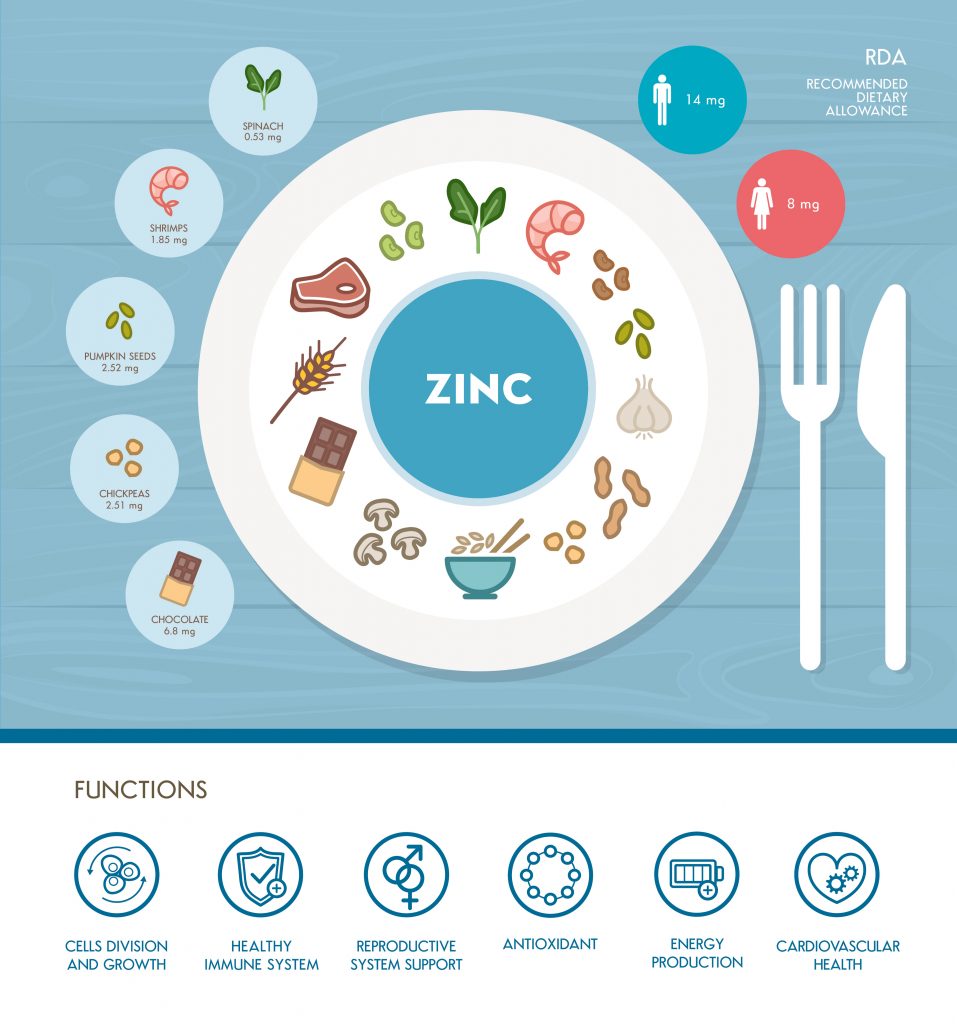
Zinc for Acne and Healthy Skin
Zinc is an essential mineral for healthy skin, it aids in reducing inflammation, aids in healing the skin and is beneficial at reducing the occurrence of acne or preventing it all together (Cutler, E.W., 2005). Zinc also utilizes and maintains body levels of vitamin A by releasing stores from the liver (Romm, A.J., 2014). Studies have shown that a lack of zinc in the body also leads to a deficiency in vitamin A. Both of these nutrients are needed for healthy epithelial cell function, formation and protection from the risk of cancer (ed. Faelten, S., 1988).
Zinc assists with collagen formulation, which is needed for healthy skin and bones. Zinc promotes wound healing by generating new skin after burns or injuries, by reducing recovery time and complications after surgery (Combine it with lavender essential oil to accelerate healing). Zinc also helps keep oil glands in the skin healthy and may reduce problems with acne (Romm, A.J., 2014).
Acne
Acne is a pro-inflammatory disease that commences in the sebaceous hair follicle. The sebaceous gland secretes oil or sebum which moves upwards along the hair follicle and displaces itself on the surface of the skin. When skin is not in its best form and there are either clumps or uneven areas with old dry skin, the glands get plugged, the sebum/oil gets trapped with bacteria within the gland with the hair follicle and acne is formed.
Acne can occur for a variety of reasons, an imbalance in hormones (which occurs often during adolescence, menstruation and meno or andropause), food sensitivity, poor hygiene and a lack of essential nutrients, such as zinc (ed. Faelten, S., 1988). Zinc is one of the most essential nutrients for the treatment of acne (Murray, M.T., & Pizzorno, J., 2012). Zinc is an inexpensive solution to many other medical acne treatments and has been very effective at reducing inflammation and the appearance of acne vulgaris (Gupta, M., et al., 2014).
Zinc sulphate is as effective as tetracycline against acne in a 12-week study, with the added benefit of having far fewer side effects.
Eczema
Many individuals suffering from eczema are deficient in zinc. This may be a result of low stomach acid (which zinc is also an essential nutrient in), which can lead to poor digestion of food, possible food sensitivity and malabsorption of nutrients due to a lack of proper digestion leading to mineral malabsorption. Eczema is also an inflammatory reaction, that can occur when one consumes allergens or foods that they are intolerant too. A lack of zinc also reduces the amount of EFAs that are converted into prostaglandins, hormone substances that are essential for regulating inflammation (Ronzio, R., 2005).
Combined with vitamin A, vitamin C, vitamin E and fatty acids, zinc can be a very beneficial supplement for reducing eczema (Batesan-Koch, C., 1994).
Psoriasis
Psoriasis is a chronic inflammatory skin disease. It occurs as a result of the immune system sending a continuous signal to speed up the skin cell growth cycle resulting in a faster turn over of cells every few days where it would normally take about one month. This leaves a pile-up of dead skin cells on the surface of the epidermis and throughout the dermis (Fitzgerald, M., 2014). Individuals suffering from psoriasis have been shown to have lower levels of zinc in their bodies, though it does not always show improvement in the appearance of the skin. Zinc supplementation does bring down inflammation and joint relief for individuals who have Psoriatic Arthritis (Lipski, E., 2012).
Zinc and ADHD
Children suffering from ADHD are deficient in several minerals and vitamins. Low zinc serum levels are very common amongst individuals with ADHD, particularly those individuals who exhibit hyperactivity, inattention and impulsiveness. Low zinc levels can be due to many issues such as gut permeability (which prevents adequate nutrient absorption) or celiac disease (shown to decrease and prevent the absorption of zinc into the body)(Elbaz, F., et al., 2016). Zinc supplementation of hyperactive children is very beneficial (Murray, M.T., et al., 2012). Zinc sulfate aided in reducing some symptoms of ADHD, such as hyperactivity and socialization deficit (Frahud, D., et al., 2014).
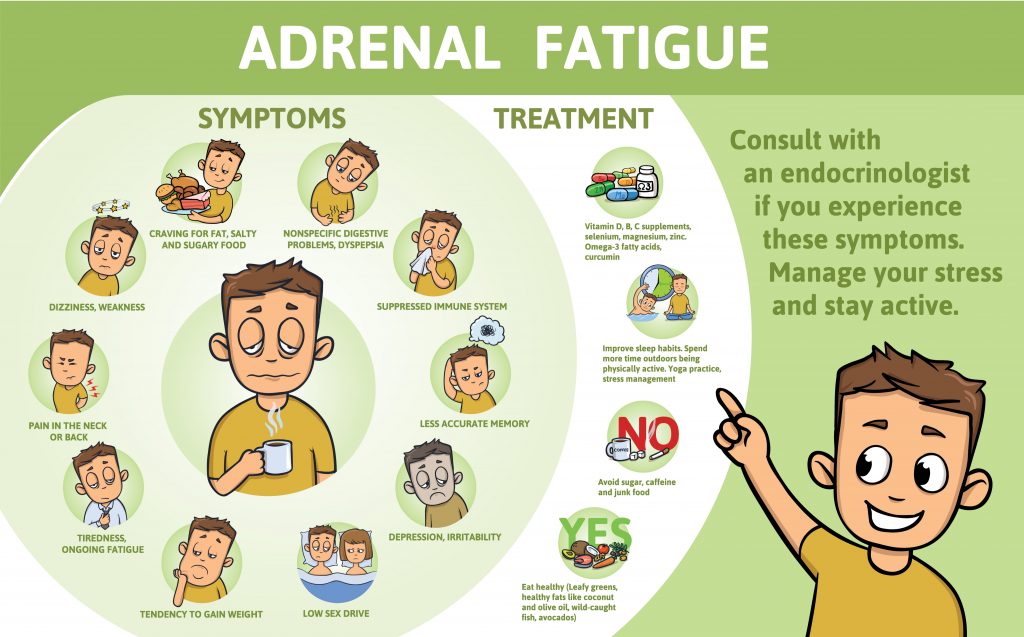
Zinc and Adrenal Glands
Adrenal glands sit upon your kidneys and are responsible for the production of essential hormones, such as sex hormones and cortisol. When they become fatigued or overworked, they may either over or underproduce a specific hormone leading to numerous imbalances in the body (Medline Plus, 2018) particularly affecting the thyroid. Diet has a big impact on adrenal health, consuming highly processed foods, foods high in sugar, artificial flavours, colours etc, and unhealthy hydrogenated fats can lead to poor functioning adrenals. Factor in the stress of everyday life and the glands get very overworked. When cortisol levels drastically increase it can quickly lead to insulin resistance, at which point supportive nutrients, such as zinc are incredibly important in increasing insulin response in a healthy way (Kharrazian, D., 2010).
Reducing stress levels, eliminating foods that are common allergens, processed foods, refined sugar and bad fats, consuming an insulin friendly diet, such as a Keto diet or a Paleo diet as well as healing the digestive system and providing nutrients to help the adrenals heal and rebalance hormone levels in the body.
Other key nutrients include; chromium, vanadium, alpha-lipoic acid, tocopherols, magnesium, biotin, inositol and Gymnema Sylvestre. Look for a multivitamin that contains most of these nutrients. Alongside that take a herbal adrenal tonic, such as St. Francis “Strest”.
Please work with a qualified healthcare practitioner to properly and safely use these nutrients in the right amount.
Alcohol Dependency and Zinc Depletion
Zinc is a key nutrient in the metabolism of alcohol. It is part of alcohol dehydrogenase – the enzyme which helps the liver detoxify alcohol. When one consumes alcohol acutely or chronically they will result in a deficiency in zinc. Alcohol uses up zinc in its breakdown within the system but is also hinders its absorption and increases its excretion in urine (Holford, P., et al., 2010).
Low zinc serum levels are associated with impaired alcohol metabolism, resulting in a predisposition of cirrhosis, impaired testicular function and further alcohol abuse. It has also been shown to increase excessive voluntary alcohol by individuals (when individuals are given a choice of either water or alcohol they choose to consume alcohol). Supplementing with zinc brought serum levels back to normal and regulated alcohol consumption (ed. Faelten, S., 1988).
Overconsumption of alcohol can also lead to prostatic hyperplasia or the enlargement of the prostate in men. The prostate is a necessary component of male fertility, as it secretes a fluid that nourishes the sperm. Although prostate enlargement is a common occurrence due to old age, excessive alcohol consumption and a high-stress lifestyle can lead to the development of an enlarged prostate at a much younger age. Supplementing with zinc aids in reducing the size of an enlarged prostate as well as symptoms associated with it such as frequent urination (Ronzio, R., 2005).
Zinc supplementation and vitamin c have proven to be the greatest benefit for increasing alcohol metabolism and detoxification as well as reducing the craving for alcohol in alcoholics (ed. Faelten, S., 1988).
Zinc and Alzheimer’s Disease
One of the most common nutrient deficiencies in elderly individuals and a key factor in the development of Alzheimer’s Disease. As most enzymes that partake in DNA replication, repair and transcription require zinc to function properly, a lack of zinc in an ageing body can wreak havoc on the brain. Zinc is required by antioxidant enzymes such as superoxide dismutase. Lack of zinc can result in the failure of nerve cells and can lead to the eventual formulation of neurofibrillary tangles and plaque (Murray, M.T., et al., 2012).
Alzheimer’s disease patients supplementing with zinc aspartate have seen good results.
Zinc an Anti-inflammatory Mineral
Acute zinc deficiency results in a decrease in immunity, however, a chronic deficiency can lead to drastic increases in inflammation systemically as a result of an increase in the formation of pro-inflammatory cytokines – leading to an increase in the potential development of a severe inflammatory disease such as rheumatoid arthritis. Individuals with arthritis or any other inflammation of the joints will see a change in both pain, motility and swelling with adequate amounts of zinc in the body (Bonaventura, P. et al., 2015).
Zinc a Powerful Antioxidant
Zinc helps protect cells from free radicals damage – part of superoxide dismutase (SOD). It is helpful in cell membrane structure and function, as well as being beneficial against symptoms of heart disease and aiding in cancer prevention and treatment. Zinc may also be involved in brain function – maintaining acid-alkaline balance through carbonic anhydrase and in phosphorus metabolism.
Cholesterol is secreted by glands in our skin and is needed for many important hormonal roles in the body. Cholesterol also acts as an antioxidant when vitamins and minerals are low in the body, therefore supplementing and consuming foods that are rich in antioxidants, such as zinc is essential in lowering excess levels of cholesterol (Erasmus, U., 1993).

Zinc for Depression
Zinc is an essential mineral for one’s mental health. With most of us getting only half of the daily requirement of zinc, many of us are at risk of being deficient and can potentially develop or result in the worsening of our mental health. A zinc deficiency has been linked to anxiety, anorexia, autism, hyperactivity, schizophrenia and depression (Holford, P., 2007). Low levels of zinc can often mirror mood disorders, making zinc supplementation beneficial for individuals suffering from depression (Murray, M.Y., et al., 2012). For some individuals suffering from depression, it can be incredibly beneficial and may be advantageous to look at a deficiency before taking medication as it can work, for some individuals, as an antidepressant (always make sure to do this under the supervision of a qualified healthcare professional) (Korn, L., 2016). Zinc is a necessary component of mood-regulating neurotransmitters, deficiency in zinc can make antidepressants ineffective (for individuals suffering from severe depression) as well as causing mood swings on a daily bases for others (Perlmutter, D., 2013).
Detoxification of Chemical and Environmental Toxins
Zinc deficiency can be a factor in people who become environmentally sensitive. These would be individuals who have high levels of volatile organic compounds and environmental pollutants within their organs, preventing such organs from functioning at their best. Zinc (along with vitamin C and selenium) can aid in the removal of mercury from the body, always under the supervision of a health practitioner (Holford, P., et al., 2010).
Zinc and Diabetes
Zinc is needed in normal insulin function for healthy blood sugar levels, energy levels, craving control, etc.(Murray, M.T, et al., 2012). It is crucial in maintaining insulin sensitivity, which can often get out of balance as a result of a diet that is high in sugar, processed foods and low in fibre. There is a strong correlation between a deficiency in zinc and insulin resistance (Kharrazian, D., 2013). Zinc like chromium plays a role in the development of diabetes (Murray, M.T., et al., 2012). Zinc is a part of all aspects of insulin metabolism, from its synthesis to its secretion and utilization, therefore its deficiency affects how the body handles blood sugar/glucose. Instead of converting glucose into energy, it turns it into fatty tissue stores (ed. Faelten, S., 1988). Diabetics also excrete too much zinc through their urine and should, therefore, supplement with 30 mg of zinc daily (Murray, M.T., et al., 2012) (Kharrazian, D., 2013).
Zinc and Diarrhea
Diarrhea is not a disease itself but a symptom of a wide variety of diseases (Mayer, E., 2016) (Lipski, E., 2012). It is the abnormally loose and/or fluid stool that is passed through your body at a very high frequency. Why it occurs is dependent on the individual and many different variables (Gracey, M., 1991). Acute diarrhea is the most common, it onsets rapidly and stays for a short amount of time (approximately 4-5 days).
Zinc has been shown to shorten the duration of acute diarrhea by boosting the immune system, adults can supplement with 50mg for 2 weeks and children 20mg for the same duration when suffering from acute diarrhea (Lipski, E., 2012).
Zinc Improves Digestion and Metabolism
Zinc is an essential mineral for conducting proper digestion of protein and carbohydrates. It is needed in the production of HCL, which is a necessary component of digestion (Lipski, E., 2012). Zinc works as a cofactor for pancreatic enzyme carboxypeptidase, enabling it to digest proteins that enter the digestive system so that they can be utilized by the body. Zinc is needed to make enzymes lactate and malate dehydrogenase for energy (Ronzio, R., 2005).
For individuals suffering from celiacs disease, underlying issues of a zinc deficiency can make some dietary changes unresponsive, as zinc is also a necessary nutrient in healing any breaks or gaps in the lining of the intestine and wound healing in general (Ronzio, R., 2005).
Zinc and Overcoming Eating Disorders
Eating disorders are mental illnesses, but like many mental illnesses, a deficiency in nutrients can spur them or make them worse. For individuals suffering from an eating disorder and partaking in binging, purging and restricting a lack of zinc may be the link to their recovery. In 1973, it was first suggested by two zinc researchers that if children began to lose their appetite it could strongly be tied to a deficiency in zinc. With time it was established that certain forms of anorexia could likely be the result of low zinc serum levels as well as a lack of essential fatty acids in the diet, both of which are needed for proper cognitive function, among many other bodily functions (Holford, P., 2007).
Though it is not the only reason for the development of eating disorders, a zinc deficiency does lead to several imbalances in the body, one’s mental state and one’s ability to smell and taste are just a few of them. Individuals experiencing anxiety or depression may not have the best relationship with food, they may experience periods of binging, restricting and purging. Although often leading to a decline in weight, it can also be seen as an increase in weight, particularly if a hormonal balance is an issue as well (Holford, P., 2007).
Supplement with 75 mg of elemental zinc, under the guidance of a registered health practitioner, continue until a healthy weight is reached and then reduce the dose in half and maintain it until a healthy diet is established (Ibid).
Zinc and Fertility
Zinc is important for hormone production and male sexual function, as low zinc can be tied to impotence (low sperm count). It is a crucial nutrient in male fertility, many studies showing that low levels of zinc can greatly affect testosterone concentrations in the body and increase infertility. Zinc supplementation increases testosterone serum levels and is especially important for individuals who are frequently sexually active (Kharrazian, D., 2013). Its supplementation has also been shown to positively affect sperms’ ability to swim, providing it with a better chance of fertilizing an egg. Zinc depletion has been linked to erectile dysfunction as zinc is a crucial part of sperm and is rapidly depleted from the body stores due to frequent ejaculation as seminal fluid contains more zinc than any other fluid in the human body (ed. Faelten, S., 1988). When the body becomes deficient sexual drive and performance are often diminished as a way to prevent future loss of the nutrient (Murray, M.T., et al., 2012).
Menstrual irregularities and female sexual organ problems can also be attributed to low levels of zinc in the body.
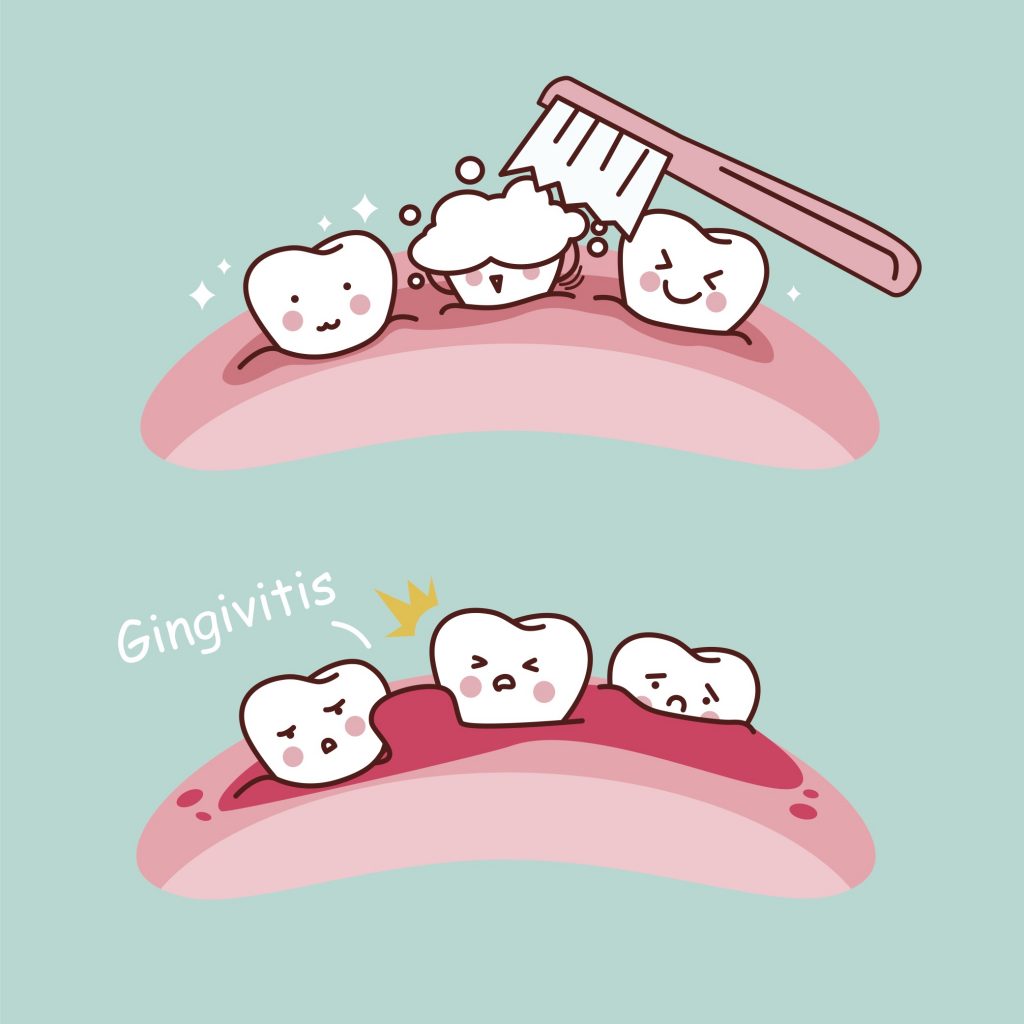
Zinc and Oral Health
Zinc is vital for strengthening tooth enamel and preventing cavities, it also aids the enzyme alkaline phosphatase in contributing phosphate to bones. Zinc is an essential part of the maintenance of healthy gums, preventing the formation of plaque, and reducing inflammation (Lipski, E, 2012). When one is deficient in zinc or has an imbalance of zinc and copper ratio, it is a sign of gum disease. Gum disease is another sign of a deficiency in zinc, as gum around the root of the tooth is composed of epithelial cells which require proper protein formation, which cannot occur without an adequate amount of zinc (ed. Faelten, S., 1988). Although a deficiency in zinc does not directly cause gum disease, a buildup of plaque does, a lack of zinc makes it very difficult for the gums to heal and prevent damage.
Zinc deficiencies are also linked to mouth ulcers/canker sores, which come about as a result of a decrease in wound healing. Recurrent canker sores are often a result of trauma, food sensitivity or nutrient deficiencies. Supplementing with 50 mg of zinc daily can prevent their occurrence. (Murray, M.T., et al., 2012).
Immune Function
Zinc is the most essential immune mineral. The less zinc consumed will result in a decrease in the size of lymph tissues which inadvertently affects the thymus and the lymph nodes. Zinc has been shown to improve antibody response to vaccines. It helps regulate the function of the white blood cells and may increase the production of T lymphocytes which are factors in cellular immunity (Bateson-Koch, C., 1994). Zinc is an integral part of both innate immunity (which does not produce memory cells) and specific immunity (which does produce memory cells). A deficiency in zinc can make it harder for the body to defend itself against new viruses and bacteria as well as ones that are recurrent but the body has forgotten about them.
A lack of zinc causes rapid depreciation of the thymus and a decline in T-cell helper function. In young children, the thymus is responsible for the regulation of maturing defence cells throughout the lymphatic system, – which is an essential part of our immune system and a filter for invasive particles and cancerous cells. An impaired immune system causes extensive damage to the thymus and lowers the formation of T cell helpers. However, studies have shown that the supplementation of zinc has the potential to fully restore T-cell – dependent antibody-mediated responses and repair the thymus, allowing T cells to once again move around the body and scan the surface of all cells looking for any signs of degeneration or mutation (Franker, P.J., et al., 1978) (Informed Health Online, 2006)
Zinc Lozenges against the Common Cold
Zinc lozenges aid in combating the common cold. Zinc is a necessary nutrient in the strength and function of the immune system and anti-viral activity in the body. Zinc lozenges are beneficial against common cold symptoms such as coughing, headaches, hoarseness, nasal congestion, nasal drainage and a sore throat.
For zinc lozenges to be effective, they need to be ionized in saliva. The lozenges should not contain any citric acid nor any mannitol or sorbitol as the zinc will be ineffective (Murray, M.T., et al., 2012).
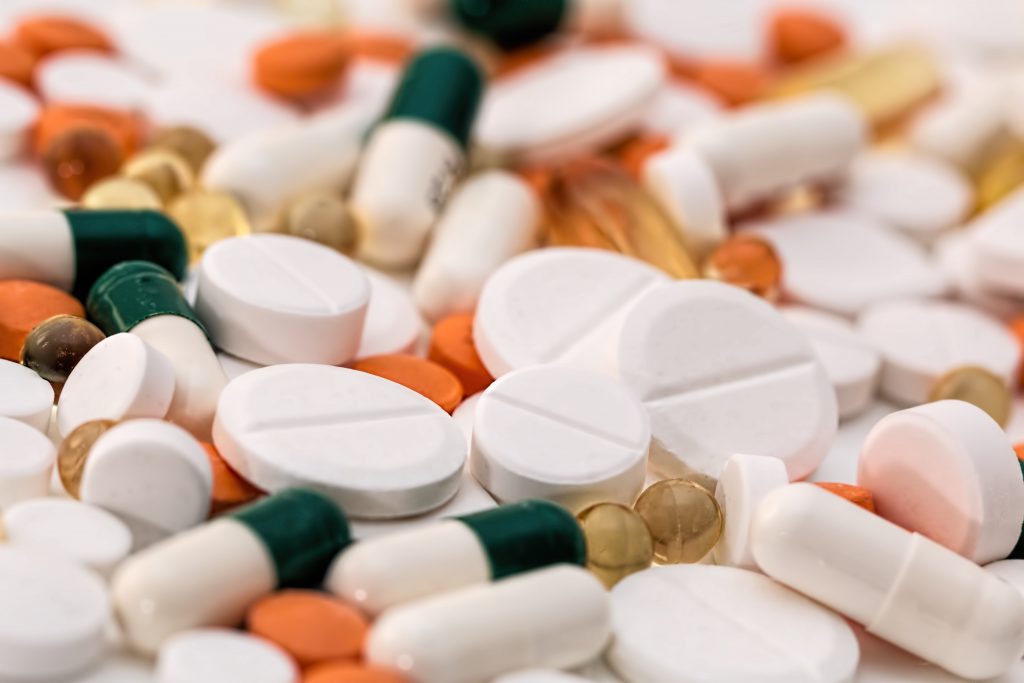
Depletion of Zinc through Medication
Aspirin
3g of Asprin per day lower blood levels of zinc, increase the loss of zinc through urine excretion.
AZT/APO – Zidovudine
Aids in inhibiting reproduction of retroviruses and HIV.
200mg of zinc per day while taking AZT will decrease the occurrence of pneumonia and candida infections. Make sure to supplement with 1-2mg of copper daily, or use copper pots.
Calcium Acetate
To prevent high phosphorus levels in the blood due to kidney failure.
Individuals with renal failure/ hemodialysis – will have a low level of zinc therefore even if not taking calcium acetate zinc should be a supplement taken as it can lead to sexual dysfunction and poor immune health. However, zinc should not be taken alongside calcium acetate as it inhibits zinc absorption.
Captopril
Angiotensin-converting enzyme inhibitor. Used in the treatment of high blood pressure and some forms of heart failure, it is also used to slow kidney disease as a result of diabetes. It causes the loss of zinc through urine, which can lead to more issues for diabetics (as it is required for insulin production). It also leads to lower zinc levels in the blood, prolonged use of captopril will lead to a zinc deficiency.
Chemotherapy
Use of antineoplastic drugs to combat cancer.
Zinc eradication, particularly of the head and neck cancer cause issues with taste. 45 mg of zinc sulphate 3 x daily can help prevent a decrease in taste as well as improving taste recovery after treatment.
Oral Corticosteroids
Anti-inflammatory agents used in the treatment of autoimmune and inflammatory diseases such as asthma, Crohn’s disease lupus eczema psoriasis.
They increase the urination of zinc and lead to its loss from the body.
Folic Acid
Necessary during pregnancy used in the treatment of anemia. It reduces blood levels of zinc, consult your doctor if you have any concerns (eds. Gaby, A.R., et al., 2006).
Zinc Toxicity
Although a vast percentage of the population is deficient in this crucial mineral, zinc toxicity does exist. The most common issue that accompanies over-supplementation of zinc is a disbalance of copper, even at a small dosage. Zinc intoxication is rare, many of the negative/toxic effects are a result of a copper imbalance. Excessive zinc supplementation elevating levels of zinc in serum and decreasing copper will lead to subsequent issues such as; lethargy, respiratory disorder, nausea, vomiting, elevated risk of prostate cancer. Zinc supplementation over extended periods should never be done unless under the supervision of a qualified healthcare practitioner. Copper absorption is suppressed when zinc supplementation is higher than that of copper and vice versa (Adams, M., 2016) (Plum, L.M., et al., 2010).
A dosage of between 5-10g/kg of body weight, which is an astronomical amount as the daily recommended dosage is 15 mg daily, can cause stillbirth and issues with development (Cunnane, S.E., 2018).
High levels of zinc supplementation have been shown to contribute to urinary tract infections (Korn, L., 2016).
References
Adams, M. (2016). Food Forensics. The Hidden Toxins Lurking in Your Food and How You Can Avoid Them for Lifelong Health. BenBella: Texas.
Bateson-Koch, C. (1994). Allergies Disease in Disguise. Books Alive: Tennesse.
eds. Bhutta, Z.A, Hurrell. R., Rosenberg, I.H., (2012). Meeting Micronutrient Requirements for Health and Development. Kroger Medical and Scientific Publishers: Switzerland.
Bonaventura, P., Benedetti, G., Albarede, F., Miossec, P. (2015). Zinc and its role in immunity and inflammation. Autoimmunity Review. Volume 14, Issue 4, page 277-285.
Culter, E.W. (2005). Micro Miracles Discover the Healing Power of Enzymes. Holtzbrinck Publishers; USA.
Cunnane, S.E. (2018). Zinc Clinical and Biochemical Significance. CRC Press. New York.
DiSilvestro, R.Q. (2004). Handbook of Minerals as Nutritional Supplements. CRC Press: New York.
Elbaz, F., Zahra, S., Hanafy, H. (2016). Magnesium, Zinc and Copper estimation in children with attention deficit hyperactivity disorder (ADHD). The Egyptian Journal of Medical Human Genetics. Volume 18, page 153-163.
Erasmus, U. (1993). Fats that heal, Fats that kill. Books Alive, Tennessee.
Farhud, D., Shalileh, M. (2014). Relation between Omega 3 Fatty Acids, Iron, Zinc & Treatment of ADHD. Zahedan Journal of Research in Medical Sciences. Volume 16, Issues 8, Page 1-5.
Fitzgerald, M. (2014). The A-Z of Natural Skin Care: Take Care of Your Skin Using Natural, Herbal, Chemical free, Homemade Treatments. Live Natural Press.
Fraker, P. J., DePasquale-Jardieu, P., Zwickl, C. M., & Luecke, R. W. (1978). Regeneration of T-cell helper function in zinc-deficient adult mice. Proceedings of the National Academy of Sciences of the United States of America, 75(11), 5660-4.
Eds. Gaby, A.R., Healthnotes Medical Team. A-Z Guide to Drug-Herb-Vitamin Interactions. Three Rivers Press: New York.
Gracy, M. (1991). Diarrhea. CRC Press: London.
Gupa, M., Mahajan, V.K., Mehta, K.S., & Chauhan, P.S. (2014). Zinc therapy in Dermatology: A Review. Dermatol Res Pract. Volume 2014, Page 11.
Holford, P. (2007). Optimum Nutrition for the Mind. Piatkus: London.
Holford, P., Colson, D. (2010). Optimum Nutrition for your Child. Piatkus: London.
Informed Health Online [Internet]. Cologne, Germany: Institute for Quality and Efficiency in Health Care (IQWiG); 2006-. What are the organs of the immune system? 2010 Nov 30 [Updated 2013 Jan 14].
Junger, A. (2009). Clean. Harper One, New York.
Keith A. McCall, Chih-chin Huang, Carol A. Fierke. Function and Mechanism of Zinc Metalloenzymes. The Journal of Nutrition, Volume 130, Issue 5, 1 May 2000, Pages 1437S–1446S.
Kharrazian, D. (2010). Why Do I Still Have Thyroid Symptoms? When My Lab Tests are Normal. Elephant Press: California.
Kharrazian, D. (2013). Why Isn’t My Brain Working? Elephant Press: California.
Korn, L. (2016). Nutrition Essentials For Mental Health. A Complete Guide to the Food-Mood Connection. W.W. Norton & Company: New York.
Lipski, E. (2012). Digestive Wellness, 4th edition. McGraw Hill: New York.
MacDonald, R.S. The Role of Zinc in Growth and Cell Proliferation. The Journal of Nutrition, Volume 130, Issue 5, 1 May 2000, Pages 1500S–1508S.
Maret, W., Sandstead, H.H. (2006). Zinc requirements and the risks and benefits of zinc supplementation. Journal of Trace Elements in Medicine and Biology. Volume 20, Issue 1, pages 3-18.
Mayer, E. (2016). The Mind-Gut Connection. Harper Wave: New York.
Medline Plus. (2018). Adrenal Gland Disorders.
Mogaddam, M.R., Ardabili, N.S., Maleki, N., & Soflace, M. (2014). Correlation between the severity and type of acne lesions with serum zinc levels in Patients with acne vulgaris. BioMed Research International. Volume 2014, page 6.
Perlmutter, D. (2013). Grain Brain. The Little Brown Book Company: New York.
Plum, L. M., Rink, L., & Haase, H. (2010). The essential toxin: impact of zinc on human health. International journal of environmental research and public health, 7(4), 1342-65.
Romm, A.J. (2014). The Natural Pregnancy Book. Ten Speed Press: New York.
Ronzio, R. (2005). The Encyclopedia of Nutrition and Good Health. Second Edition. Checkmark Book: New York.
Roohani, N., Hurrell, R., Kelishadi, R., & Schulin, R. (2013). Zinc and its importance for human health: An integrative review. Journal of research in medical sciences: the official journal of Isfahan University of Medical Sciences, 18(2), 144-57.
Amanda Filipowicz is a certified nutritional practitioner (CNP) with a bachelor in environmental studies (BES) from York University. She also has certification in clinical detoxification, prenatal and postnatal care as well as nutrition for mental health. She has been working as a nutritionist since 2013 and is a lifelong proponent of eating healthy.

